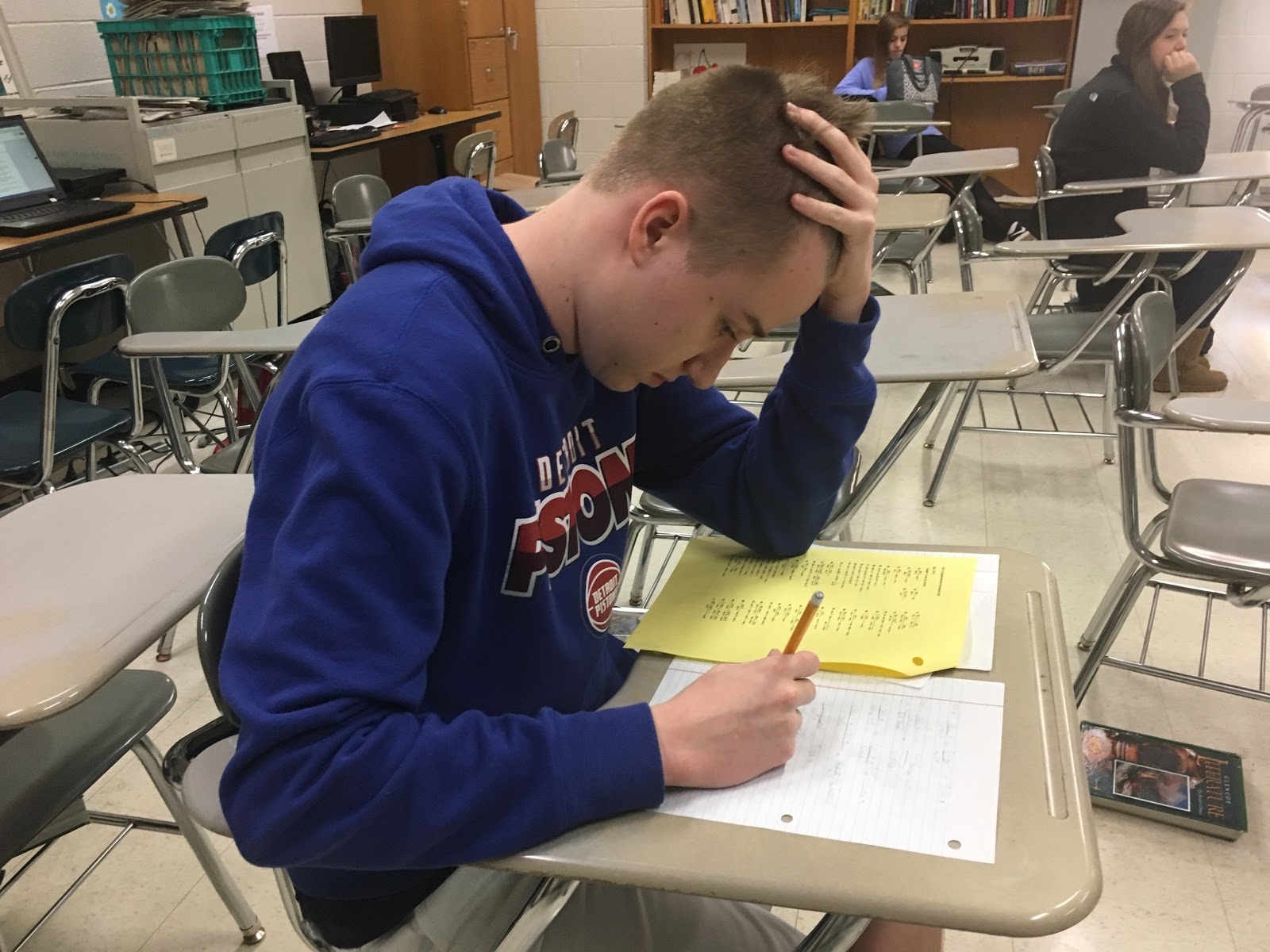Disclaimer: (For those taking multiple AP classes in order to gain access into the school of your dreams, this article may not apply to you.)
The transition from high school to college is an exhausting process. Typically, juniors are midway through the complicated system of touring campuses and looking at what schools have to offer to adjust to their majors.
Recently, underclassmen, more specifically sophomores, have been putting themselves under the same stress as upperclassmen.
One of the largest concerns previous sophomores had was the fear of not having a solid enough GPA to get accepted into schools.
In dismay, some students choose to boost their GPA by taking multiple AP (Advanced Placement) classes, a few even decided to three or four APs in order to ensure a solid GPA.
Though some students were practically born to take on the difficulty of such classes, others sign up for the pure reason of GPA enhancement, not entirely sure of how much trouble they may be in.
Stress and confusion sets in immediately for rising juniors entering their first AP class. A test within the first week of classes? Almost double the work of the honors version of the class? Students usually end up asking themselves “What did I get myself into?” after a month of class.
As much stress as these students put themselves through for their future, some fail to recognize the hardship is easily preventable and not required to get into their dream school.
For example, my older sister was part of the 2016 Leesville graduation class. She was a smart kid and came home each semester with all A’s on her report card. Out of the thirty-two classes she enrolled in while at Leesville, only one counted as an AP credit to her transcript.
The credit was for the Spanish five class. Therefore, her only AP class was not even a core class, which is what others have signed up for semester after semester.
Fast forward from her freshman year to graduation, after sending in four applications to four different schools (accepted into three), she was accepted into and now is currently enrolled into East Carolina University, looking to graduate with a major in nursing by 2020.
Without enrolling in a single core AP class, my sister was able to achieve her goal of getting into a school which suited her needs perfectly.
For others, the thought of college forces themselves into a false sense of panic. However, is the stress for sophomores really worth the amount of sleepless nights?
Sleep is one of the keys to being a successful student. When sleep is deprived from a student due to academics, problems may occur. According to Kqed.com, “[researchers] were surprised to find that diminishing sleep in order to study was actually associated with doing more poorly on a test, quiz, or homework,”
Students who are not as well rested as they should be before an assessment, like stated above, tend to result with lower grades on tests and quizzes. I can attest to this as I notice friends of mine entering school with bags below their eyes the morning of their tests.
When asked why they look like a zombie, the usual response is “AP ____ test I had to study for. I stayed up until 3 o’clock.” My response becomes a blank glare at the friend, as I question why they put themselves through so much stress just for one class.
However, some students’ reasoning behind the stress during their junior year is to ease up on classes for senior year as they apply to schools, hoping for acceptance.
“The reason to cram in all the hard classes junior year is for when you apply to colleges. Colleges look at the classes you take junior year, therefore you don’t necessarily want to take hard classes senior year,” said Ashley Austin, a current senior at Leesville.
Although there are significant advantages toward taking difficult classes junior year in order to have a relaxed senior year, students may be putting themselves in highly challenging situations when it may not be quite as necessary.
Not to be put to shame, AP classes nonetheless offer great benefits to high school students. For instance, students can take advantage of the credits they receive upon finishing the classes to graduate early.
Others use the classes and their GPA boosting powers to advance the reality of getting into their dream school. Universities such as UNC Chapel Hill, Duke and Davidson are a few of the schools students have a better chance of getting accepted into due to their involvement in AP classes (beyond other reasons).
Meanwhile, other schools that don’t require the same amount of AP classes and same GPA as higher level schools still accept students the same. Therefore, as the decision is ultimately made by the student, there are both positive and negative consequences to consider before sealing the deal.

Leave a Reply